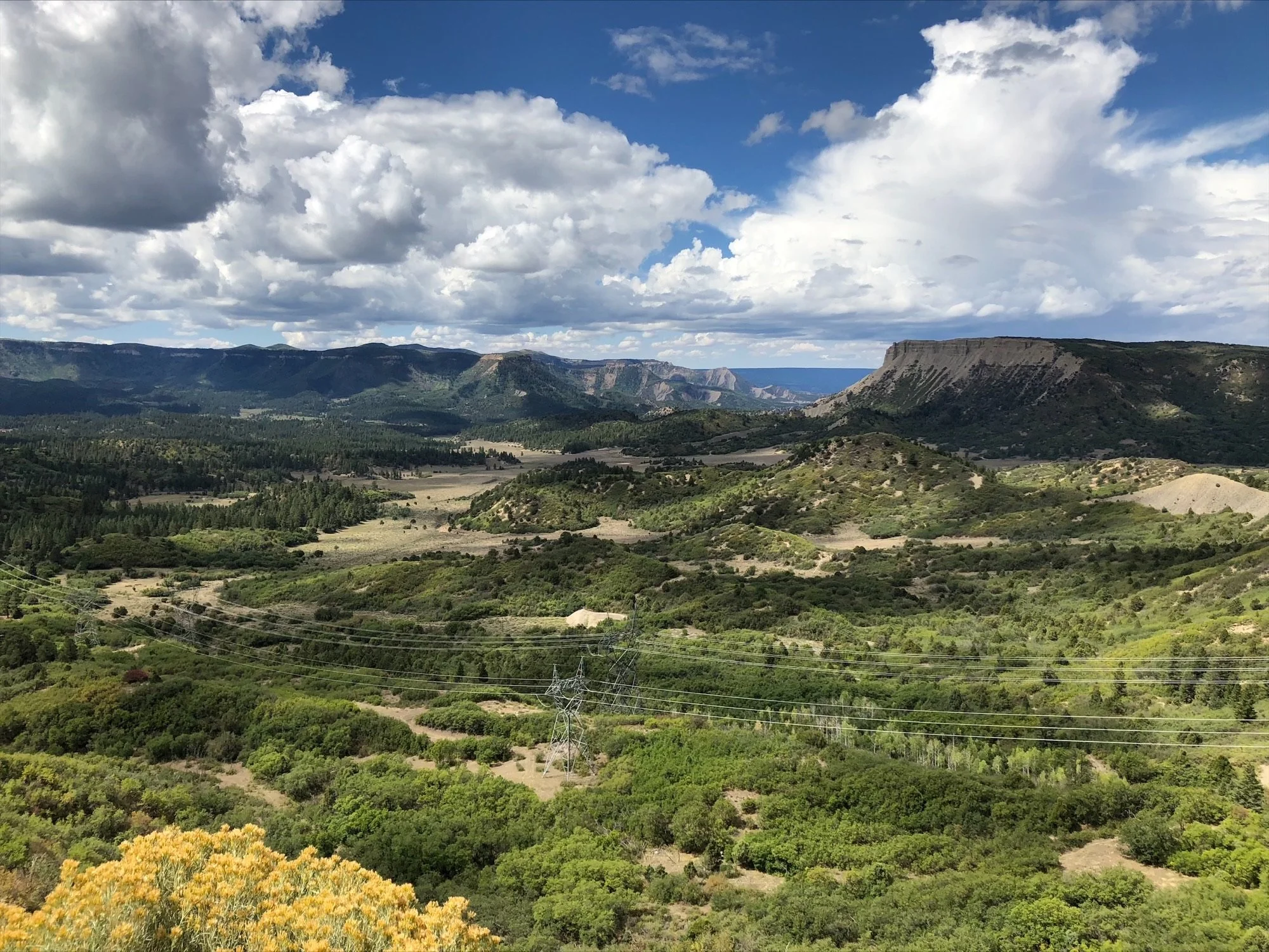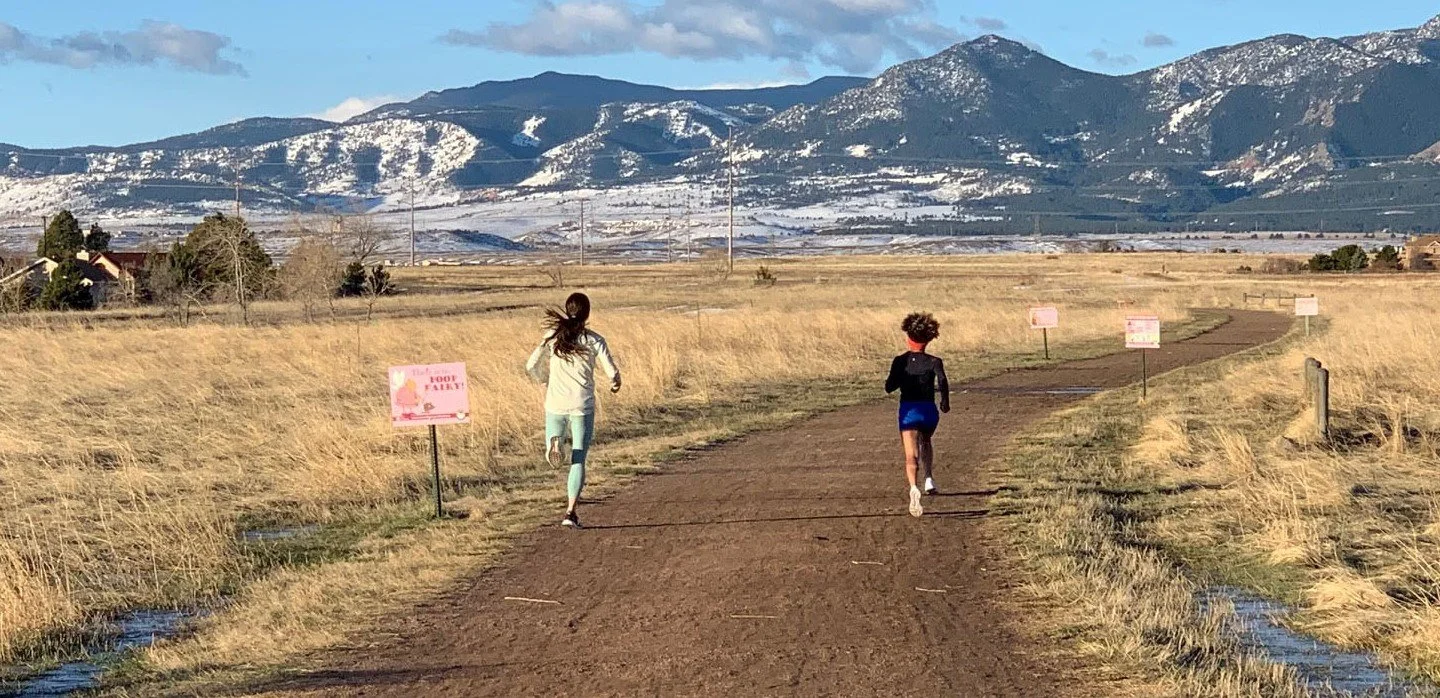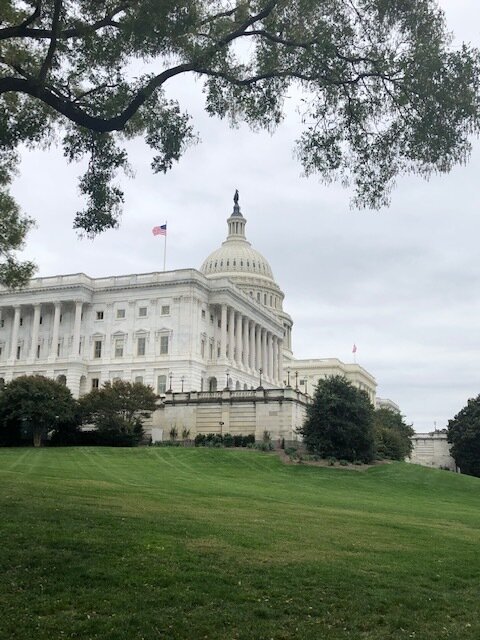Keep It Colorado will award $840,000 in assistance to 10 nonprofit Colorado land trusts, which will support landowners who have volunteered to protect their properties through conservation. The 15 selected projects will help permanently protect over 13,000 acres of working ranches, wetlands, water rights and wildlife corridors on land that would otherwise be at imminent risk of being subdivided or converted to other uses.
Keep It Colorado has received $1.52 million to provide transaction, planning, capacity and community engagement support to Colorado’s land conservation community. The funds are organized under two programs: the Transaction Cost Assistance Program and Organizational Advancement. They will enable coalition members to take steps in implementing Conserving Colorado: A 10-year Roadmap for the Future of Private Land Conservation.
Keep It Colorado and the Land Trust Alliance have partnered to award nearly $160,000 in grants to land trusts and conservation nonprofits, helping them strengthen and build programs to create a more diverse, equitable, inclusive and just conservation sector and advance organizational capacity. Investments from Great Outdoors Colorado (GOCO) generously funded this initiative through Keep It Colorado’s Emerging Conservation Opportunities (ECO) program.
In the final day of the legislative session, the Colorado General assembly advanced a bill to extend and expand Colorado’s Conservation Easement Tax Credit to Governor Polis for his signature. Senate Bill 24-126 builds upon the immense success of the tax credit program by increasing the tax credit cap by $5 million for a total of $50 million annually, which will help meet the current demand and expand the state's conservation reach.
A bill to extend and expand Colorado’s Conservation Easement Tax Credit was introduced in the State Senate. Senate Bill 126 aims to build upon the immense success of the tax credit program by eliminating the expiration dates of the Conservation Easement Oversight Commission and the Certified Holder program. It also proposes to raise the tax credit cap to $75 million to meet the current demand and expand the state's conservation reach.
Keep It Colorado will award $260,000 in assistance to six nonprofit land trusts across Colorado, which will support landowners who have volunteered to protect their properties through conservation. The projects will permanently protect 2,637 acres of working ranches, wetlands, water rights and wildlife corridors on land that would otherwise be at imminent risk of being subdivided or converted to other uses.
Ducks Unlimited (DU) has pledged to support Keep It Colorado’s grant program, the Transaction Cost Assistance Program (TCAP). TCAP provides financial support to Colorado’s land conservation community to help cover costs associated with conservation easement transactions, which protect land in perpetuity. Keep It Colorado will apply DU’s investment toward conservation projects that involve Colorado wetlands and benefit migratory waterfowl, shorebirds, and other wildlife and natural resources.
A new statewide survey of Colorado voters found broad, bipartisan support for continuing tax incentives for tools that enable landowners to voluntarily conserve land on their properties, and that increase available tax incentives for those willing landowners. The majority of respondents say they would also tell their state legislator to vote in favor of doubling the amount of land that can be conserved through Colorado’s system of existing tax incentives.
Across the state, counties and municipalities have ballot measures in place to support a variety of open space efforts, from trail maintenance, river restoration and wildfire mitigation, to land acquisition, wildlife protection and more. Four measures will be on Fall 2023 ballots - we summarize them, and offer a small glimpse of other initiatives already active within the state. Also available is a complete list of all ballot measures supporting protection of open spaces.
Keep It Colorado has received a grant of $25,000 from the Trinchera Blanca Foundation to help advance goals of Conserving Colorado: A 10-year Roadmap for the Future of Private Land Conservation. Trinchera Blanca Foundation’s investment will enable Keep It Colorado to support its coalition members in making progress on the implementation phase of the roadmap.
Today, GOCO’s board approved the second installment of a three-year, $3-million investment in conservation initiatives supported by Keep It Colorado. The investment will advance on-the-ground projects to protect lands through conservation efforts; demonstrate the economic return on investment of conservation; and grow land trusts’ capacity to engage more people in conservation while reflecting the multifaceted interests of Colorado’s diverse communities.
After a competitive application process, Keep It Colorado and Land Trust Alliance awarded $172,000 in funds to nine land trusts for 14 projects that advance diversity, equity and inclusion and organizational development initiatives in the conservation sector.
Keep It Colorado has hired Amy Beatie to usher the organization through its next era of leadership in the private lands conservation sector. She will take on her new role August 1. Amy brings a wealth of experience to Keep It Colorado, with an in-depth background in nonprofit and government leadership, professional expertise in legal matters, and a personal passion for conservation.
Keep It Colorado will award $215,000 in grants to help four Colorado land trusts complete conservation projects in partnership with landowners across five Colorado counties. The projects will permanently protect 13,375 acres of critical wetlands and wildlife habitat, family orchards and vineyards, agricultural landscapes, water rights and rare species.
Keep It Colorado, a nonprofit coalition of conservation organizations, announces the publication of Conserving Colorado: A 10-year Roadmap for the Future of Private Land Conservation. The roadmap sets goals to double the number of acres of land protected through conservation, double the engagement of Coloradans in conservation efforts and programs, and double the resources needed to support conservation work over the next decade.
Keep It Colorado’s 2022 annual report highlights the coalition’s accomplishments last year and celebrates the many milestones the community has reached in the realm of private land conservation.
Melissa Daruna, Keep It Colorado’s executive director since April 2019, has announced that she will step down from her position at Keep It Colorado starting in mid-March. The board of directors will soon be launching a search for a new executive director.
Keep It Colorado has been awarded $375,000 from Gates Family Foundation to support the coalition’s strategic initiatives and help sustain and grow the private lands conservation sector.
The year 2022 has been a good one for conserving Colorado’s natural resources. With financial assistance from Keep It Colorado, six land trusts helped landowners conserve about 4,725 acres of land spanning 10 counties. That is equivalent to 3,579 American football fields, nine Grand Lakes or 1.8% of Rocky Mountain National Park. Protection efforts also included acreage along 13 miles of stream.
Keep It Colorado will award $197,000 in grants to help three Colorado land trusts complete conservation projects. Their activities with landowners who’ve chosen to conserve their land in perpetuity will protect 8,512 acres of land that would otherwise be at imminent risk of being sold, subdivided or converted to other uses.
Keep It Colorado has created two resources for landowners considering voluntarily conserving their property and for landowners who purchased land with a conservation easement already on it. These resources are designed to cover the basic background that a landowner with a conservation easement (or considering one) would need to know - including the benefits and requirements.
Keep It Colorado has launched two initiatives through its new Emerging Conservation Opportunities (ECO) Program. The Transaction Cost Assistance Program and the Alternative Valuation Tool pilot will benefit landowners interested in using conservation easements to voluntarily conserve land. Landowners will benefit from cost assistance and more choices for valuing conservation easements.
Keep It Colorado celebrated 9 “Conservation Heroes” and 11 photographers at its inaugural Fall Reception on Sept. 1 at the American Mountaineering Center in Golden. About 80 guests attended the event, which featured an awards ceremony, a gallery exhibit and a cocktail reception.
After a competitive nomination process, a selection panel has named five Conservation Heroes, and will honor them for their outstanding contributions to conservation in Colorado! The panel enjoyed reviewing the nominations and hearing about the passion, energy and expertise of many across Colorado who are making a significant difference to advance the pace and scale of conservation.
Keep It Colorado selected 11 photographers for their photos and narratives illustrating their connection to land, water and wildlife in Colorado. Their work will be celebrated at a “Colorado the Beautiful: A Tapestry of Photos” gallery exhibit in September. Submissions highlight the diversity and beauty of landscapes across the state and celebrate the unique relationships people have with Colorado’s places and spaces.
Colorado voters across the political spectrum say they want lawmakers to ramp up voluntary conservation of the state's privately-owned forests, farms, clean water sources and wildlife habitat - according to a new poll conducted by New Bridge Strategy on behalf of Keep It Colorado, with support from Trust for Public Land and The Nature Conservancy. Comments from Lori Weigel, principal, New Bridge Strategy.
Keep it Colorado, a conservation group working with local land trusts, has received an additional $1 million grant from Great Outdoors Colorado to protect farmlands and other privately-owned lands from future development. Comments from Amy Beatie, executive director, Keep it Colorado.
The Eagle Valley Outdoor Movement is working to make access to outdoor recreation more accessible to Spanish-speaking residents. Currently, 20% of the county’s residents, many of whom speak Spanish, do not have ready access to parks and open space. Comments from Jessica Foulis, executive director, Eagle Valley Land Trust.
Josie Ruybal Abeyta saw a win-win in placing 821 acres of land passed down by her father into a conservation easement. Family members who preferred money would benefit from the sale of the easement and state tax credit incentives, and the family would still be able to use and enjoy Ruybal Fox Creek Ranch in Colorado's San Juan Mountains. Comments from Josie Ruybal Abeyta, owner, Ruybal Fox Creek Ranch.
Conservationists have released a plan to protect key lands and waters in Colorado that people and nature need to survive and thrive in a changing climate. “Conserving Colorado: A 10-year Roadmap for the Future of Private Land Conservation” calls for doubling the number of acres protected over the next 10 years, from 3.3 million to 6.6 million acres. Comments from Linda Lidov, interim executive director, Keep It Colorado.
The May family has worked a 16,000-acre ranch in southeastern Colorado, which has been recognized nationally for its sustainability and conservation efforts, for over three generations. Recovery efforts are still underway after a devastating wildfire swept across 10,000 acres in the spring of 2021. Comments from Dallas May, Colorado rancher and co-owner.
A Durango area family farm is tapping a conservation easement to strengthen and grow a viable business on 180 acres of land overlooking the Animas River. Founding owner of DSM Land Jennifer Thurston is working with the La Plata Open Space Conservancy to access generous saleable tax credits to expand production of water-efficient crops and other programs to benefit the public. Comments from Jennifer Thurston, founding owner, DSM Land PBC.
A grant recently awarded by the group Keep it Colorado will help protect 2,565 acres of land adjacent to Mesa Verde National Park, the San Juan Scenic Byway and San Juan National Forest. The move is expected to preserve iconic views entering the park, support agricultural resiliency, protect significant archaeological sites and maintain critical wildlife habitat. . Comments from James Reimann, conservation director, Montezuma Land Conservancy.
Some three million acres of Colorado lands have been protected through land trusts and their partners, and new online resources launched by the group Keep it Colorado aims to help more families keep producing on their farms and ranches, and maintain their land for future generations. Erin Quinn, conservation director with the Aspen Valley Land Trust, said protecting lands through conservation easements now is a good idea for a number of reasons.
Recent awards for “Conservation Heroes” spotlight the collaborative vision and strategy which go into protecting Colorado's healthy vibrant landscapes, wildlife habitat, and local farms and ranches. "Sometimes we don't realize all the work that goes into making those places special. Protection or conservation of those lands and the wildlife that live there doesn't just happen by itself."
America the Beautiful, or 30 by 30, is not a land grab. Nobody is taking away farmers’ and ranchers’ private property rights. Conservation and conservation easements are voluntary. And conservation easements, which are legal agreements to protect land in perpetuity, create more — not fewer — options for landowners.
Keep it Colorado has received $3 million in grants from GOCO. Some of that money will help fund a new round of conservation projects to protect more critical watersheds and wildlife habitat and support local food systems.
As summer rolls in across Colorado, the threats of wildfire, diminishing snowpack and prolonged drought weigh heavy on the minds of many residents who cherish the state's iconic landscapes and wildlife. Conservationists are encouraging people to get in touch with their local land trusts to be part of the climate solution.
More frequent and exponentially larger wildfires and prolonged drought already are impacting Colorado's agricultural lands and regional economies. To ensure communities can survive and thrive in a changing climate, a broad range of stakeholders are working to create the state's first-ever private lands conservation plan. Read the full story on Public News Service.
Landowners in Colorado could play a major role in President Joe Biden's efforts to conserve 30% of the nation's undeveloped lands by 2030, and make money at the same time. Read the story on Public News Service.
“Conserving and Restoring America the Beautiful” is a call to action to protect 30 percent of the Earth’s lands and waters by 2030, and Coloradans have reason to celebrate it.
Most everyone is aware of the ecological benefits of conserving land – clean water, healthy plants and wildlife, and rich habitat for animals, birds and fish. But two other critical outcomes of conservation immediately rise to the top for me: a strong economy and climate change mitigation. Most Coloradans agree.
Keep It Colorado surveyed 424 registered voters about their understanding of the work of land trusts and the value they place on conservation. Conservation is clearly a priority - but more could be done to support it.
In Colorado there is a need to balance many interests when it comes to protecting our lands and waters: recreation, agriculture, wildlife and water, to name a few. Keep It Colorado's goal to develop a Statewide Private Lands Conservation Plan aims to do that.
Who decides where a trail goes? What if the trail doesn’t go where I want it to go? What happens when people go off trail? Get answers to all of these questions and more. (Hint: Trails don’t just “happen.”) Here are some things people can keep in mind about trails - and what it will take to keep them beautiful, accessible and open.
In spite of the hardship of the unusual times we find ourselves in, our members have discovered some unique and exciting opportunities, and developed creative solutions they may never have imagined before. Let’s celebrate those successes and that optimism for the future. Here’s just a glimpse of what our land trusts have been up to.
August 1 is Colorado Day. On that day in 1876, President Ulysses S. Grant signed a proclamation admitting Colorado as a state. As we celebrate Colorado and all of its gifts, we think about the role conservation plays in keeping it special. Our thoughts also turn to the culture of conservation that will be required to keep Colorado wonderful into the future.
The pandemic has changed so much in our lives – and may continue to do so for some time to come. One thing that has really struck me is the optimism of our conservation community and our ability to meet this challenge with new opportunities.
How can we address racial injustice in conservation? This question weighs heavily on me; and I welcome the burden and the responsibility. I know it’s a question that weighs on many of my colleagues in conservation as well.
Since COVID-19 hit, trails and other open spaces have seen significant spikes in visitors as more people itch to get out of the house and head to the hills. We’ve created #KeepItInMind to share tips for keeping our outdoor spaces special.
We believe in keeping it Colorado for ALL Coloradans – including Black people and all people of color. And we stand behind the Black community.
Over the past couple of months, I’ve seen how critical the outdoors and access to nature are to people around the world. Keep It Colorado has an opportunity to help make conservation a priority across the state. After all, that connection with the outdoors people are craving is made possible by conservation.
Connecting with the land is a way to seek solace, and growing up in Colorado creates those connections in unique ways. Linda Lidov shares how her childhood experiences getting dirty evolved into a conservation mindset.
On Earth Day we had much to celebrate: In addition to honoring Earth with love letters and tributes to our beautiful blue planet, we celebrated Melissa Daruna! Earth Day was her one-year anniversary as our fearless leader.
Take a deep breath. Go ahead, do it as you read this. Over the past few weeks I’ve had to continually remind myself to just take a deep a breath. Like for many of you, at times everything feels overwhelming, and at other times the slower pace and time at home with family is warmly welcomed.
A bill to extend and expand Colorado’s Conservation Easement Tax Credit was introduced in the State Senate. Senate Bill 126 aims to build upon the immense success of the tax credit program by eliminating the expiration dates of the Conservation Easement Oversight Commission and the Certified Holder program. It also proposes to raise the tax credit cap to $75 million to meet the current demand and expand the state's conservation reach.
Keep It Colorado will spend 2023 focusing on policy priorities that will build more bipartisan support for conservation and pave the way for reauthorizing the tax credit program in a future year. Keep It Colorado will remain active at the Colorado State Capitol and in Washington D.C., continuing to promote existing conservation tools and look for new opportunities to increase investments in conservation.
Keep It Colorado will spend 2022 focusing on policy priorities that will build more support for conservation, and specifically private lands conservation. Keep It Colorado will remain active at the Colorado State Capitol and in Washington D.C., continuing to promote existing conservation tools and look for new opportunities to increase investments in conservation. Read about our 2022 policy priorities at the state and federal levels.
Why is the Conservation Easement Enhancement and Rural Stimulus Act (HB21-1233) important? How does it incentivize ranchers and other landowners? Has there been a surge of interest since this bill became law? Get answers to these questions and more.
On June 30, 2021, Governor Polis signed Conservation Easement Tax Credit Modifications (HB21-1233) into law. The legislation helps to accelerate land conservation in a state threatened by the ongoing climate crisis and population growth, and ensure that the state’s conservation easement tax credit program functions more effectively and efficiently.
Keep It Colorado’s bill, HB1233 – Conservation Easement Enhancement and Rural Stimulus Act, passed in the Senate on June 7. This bill accomplishes some key policy priorities that will help increase the pace of land conservation and ensure that the conservation easement tax credit program functions as effectively and efficiently as possible.
Keep It Colorado’s bill, the Conservation Easement Enhancement and Rural Stimulus Act (HB21-1233), was introduced in the Colorado State Legislature on March 19, 2021.
Climate change is one of the most urgent challenges we face. We must create solutions that address climate change by working collectively within and beyond the conservation community and provide leadership to our coalition members.
Keep It Colorado is endorsing three local ballot initiatives that support open space, water conservation and climate solutions - wins for all Coloradans.
While the legislature is adjourned, we continue to advocate for our members. We’re focused on relief and stimulus packages, H. 1992 and protection of the tax credit program.
It has been a busy beginning of the state legislative session! We’ve successfully seen the introduction and progress of the Working Group Bill – SB20-135.
SB20-135 was introduced in the Senate. The bill was drafted to reflect the HB19-1264 Working Group recommendations. A hearing is scheduled for Feb. 13.
We’re pleased to announced that the Keep It Colorado board of directors adopted the policy platform last Thursday.
We're pleased to announce that on December 5 Keep It Colorado’s board of directors unanimously voted to endorse the policy recommendations of the HB19-1264 Working Group.
Keep It Colorado and Colorado Cattlemen’s Agricultural Land Trust visited Washington, D.C. for legislative briefings and networking.
The IRS has issued final regulations regarding contributions in exchange for state tax credits.
The HB19-1264 Working Group is under way and is tasked with identifying recommendations for three issues.
Governor Polis signed HB19-1264 into law, extending the conservation easement oversight commission and division of conservation program to certify easement holders until 2026.
The coalition opposed this bill as it was a retread of the 2018 legislation Rep. Lewis introduced that we opposed.















































































